ARTICLE AD BOX

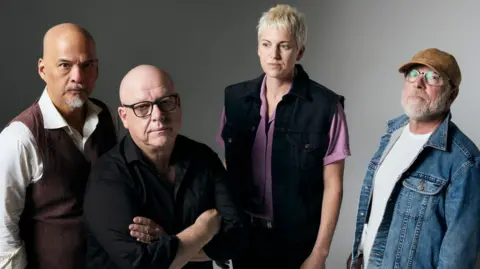 Travis Shinn
Travis Shinn
Pixies are one of the most influential bands in alt-rock (L-R): Joey Santiago, Black Francis, Emma Richardson and Dave Lovering
Pixies frontman Black Francis wouldn't be your first pick to read the CBeebies Bedtime Story.
Over the course of his band's wildly influential career, his fractured, often abstract songs have referenced Biblical violence, mutilation, incest, torture and death.
"Sliced up eyeballs" and "goats of lust" aren't traditionally the sort of images that help your toddler drift off to sleep.
Luckily, he didn't recite his own lyrics when he popped into CBeebies earlier this month. The book he chose did have a distinct Pixies flavour, though. It's called There Was A Young Zombie Who Swallowed A Worm
"I usually don't do things like that, but I enjoyed it," the 59-year-old says.
"My girlfriend sort of insisted, so I did it with feeling and, you know, I raised five kids, so I'm pretty good at bedtime stories."
It's hard to imagine Pixies appearing on children's television at any other point in their career.
The abrasive riffs and intertwining harmonies of songs like Debaser, Monkey Gone To Heaven, and Where Is My Mind signposted the future of alternative rock in the late 1980s; and they were cited as inspirations by everyone from Nirvana and Radiohead to... er, James Blunt. ("They'd be furious to hear that, wouldn't they?" he recently said).
Just as the artists they inspired began to hit the mainstream, the band broke up - but their reputation grew in their absence.
In 2003, the NME named their 1989 album Doolittle (recorded for $40,000 in the basement of a hair salon) the second-best record of all time.
Twelve years later, it sold its 300,000th copy in the UK, gaining the band their first ever platinum record, 30 years after they formed.
By that point, they'd reunited for a first-rate second phase. When we speak, they're about to set off on an Australian stadium tour with Pearl Jam.
"Our audience just seems to get bigger all the time," Francis says... Hence the cameo on CBeebies.

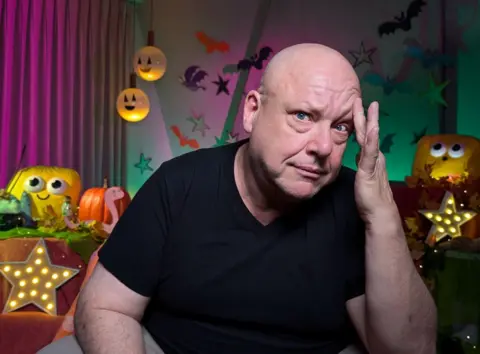
Black Francis read the CBeebies Bedtime Story on Saturday, 25 October
Pixies formed in 1986, when Francis (born Charles Thompson IV) dropped out of university and persuaded his guitarist room-mate Joey Santiago to do the same. A local newspaper ad brought in bassist Kim Deal and, through her, drummer Dave Lovering.
A buzzy demo tape won them a contract with British label 4AD, and they were quickly embraced by the indie music press, where one writer described their corrosive sound as "a wild new shock".
But the secret to their success, Francis says, is simplicity.
He describes the first time Pixies headlined Reading festival in 1990. Further down the bill was a group whose show was a "very Vegas kind of affair".
"They had lights and confetti and balloons," he recalls. "A lot of schtick going on.
"Their tour manager turned to our manager, Chas Banks, and said, 'So what do you have prepared for your set?"
"And he replied, '25 good songs'".
"I was very proud that that's how he responded, because that is literally all we had. We had no dance moves, we had no balloons, we literally just had our music.

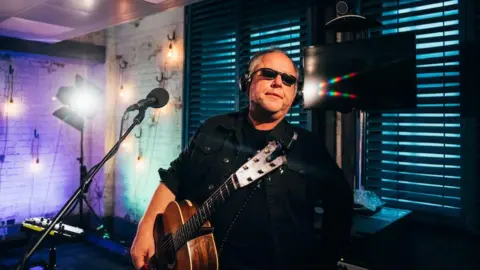
Francis was born Charles Michael Kittridge Thompson IV and played his first show at the age of eight, as part of the Boston Folk Song Society
Naïve energy
There's a tussle in the music, too, which vacillates between blood-curdling punk and what the band called "dust-bowl songs" - country-tinged, heartland folk ballads.
Lovering has said the album is "more traditional" than earlier Pixies records. Francis says those seeds were sown in his 1990s solo work.
"I'm going to go out on a limb here, and I'll say something that I've not said in an interview before," he says.
"When the Pixies broke up, I began to allow myself to stand outside of so-called underground music. I even went and made a couple of records at Nashville.
"And when we got back together, there was a lot of reticence from the producers and, quietly, behind-the-scenes, the managers, who were trying to make sure that Charles didn't turn it into some sort of 'country thing'.
"I think I deferred to that somewhat, but I didn't feel like the results were necessarily notable. So I started to allow more of that stuff into the mix.
"And I think everyone around me has, consciously or unconsciously, relaxed and allowed me to do it."
He warms to the theme, saying it's unreasonable to expect a band in their fifth decade to re-capture the spittle-flecked anger of youth.
"It gets harder to do those kind of things, because when you're young, there's so much naïvete driving the bus. Even if the song compositionally is flimsy, you make up for it with all that energy.
"But what happens is you get better at playing guitar, better at composing, and that naïve energy is gone. It's very hard to tap into it. It's much easier to tap into the I-know-what-the-hell-I'm-doing energy.
"And maybe that's not what people want to hear but, you know what? I can't be 19 years old again. And the harder you try, the sillier it sounds."

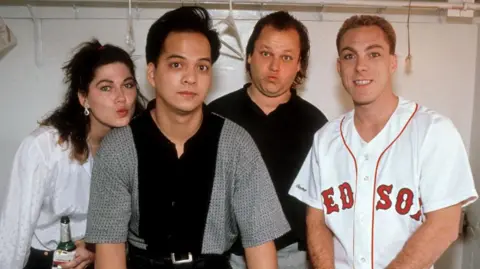 Getty Images
Getty Images
Pixies original line-up, with Kim Deal (left). She left the band in 2013 to concentrate on her other group, Breeders, and recently released a debut solo album.
One of his new songs disproves that theory.
Oyster Beds is two minutes of lean, vigorous riffs coupled with what, on the surface, appear to be some of Francis's most surreal lyrics to date: "A musketeer and her two deers / A country house in Dadasphere."
In fact, he wrote the song in his art studio, and the lyrics are "a little laundry list of things I've painted in the last few years".
"I was kind of like, 'I just need some words here', and it's a punky song, so I wasn't feeling strongly about the message.
What does he get from painting that music doesn't provide?
"Solace [from] other people," he laughs. "Not that playing with people is bad, because it gives you companionship, but sometimes it can get laborious.
"With painting, I realised, 'Oh, I can do this and have all of the debates and fights in my head, and there's no one to answer to'."
He proceeds to describe that process at entertaining length.
"So if the brushes are driving the bus, I'll be like, 'Don't forget about your narrative'. But then my inner monologue will go, 'Screw the narrative, because right now big brush is in charge and big brush is making a big mess'.
"Then it'll be like, 'Alright, you've ruined the painting enough, it's time to think about what this painting is about. We've got to let figurative take over for a while to bring some order to all this chaos'.
"And so it becomes this argument between the different elements of the painting. They're all professors at the Black Francis art school, and I really enjoy that.
"It's crazy, even insane, what's going on in my head, but I do it for hours."
Crazy, maybe, but the most compelling art comes from creative chaos - and that's why, after all these years, Pixies are still a thrill.

 5 months ago
26
5 months ago
26
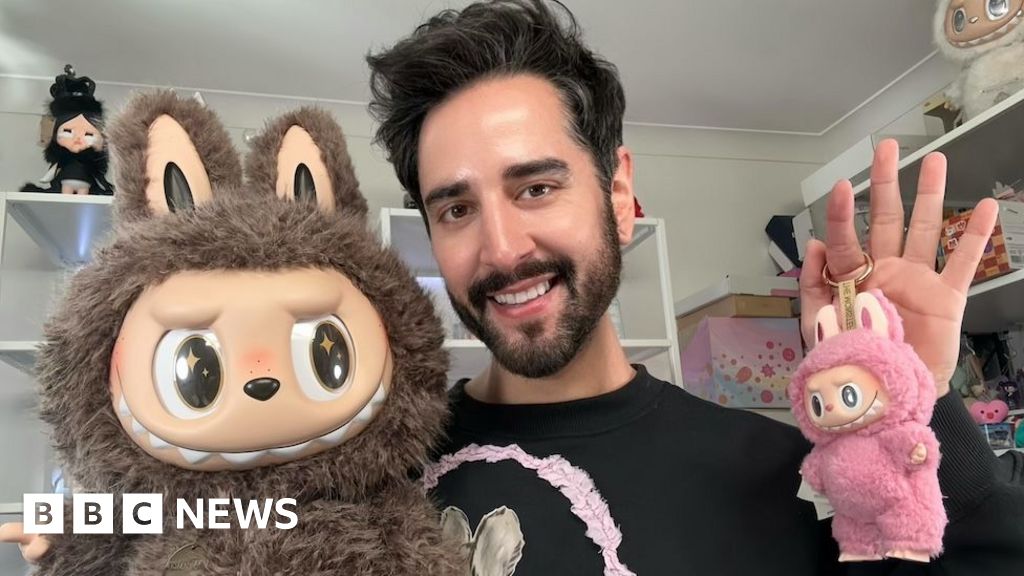
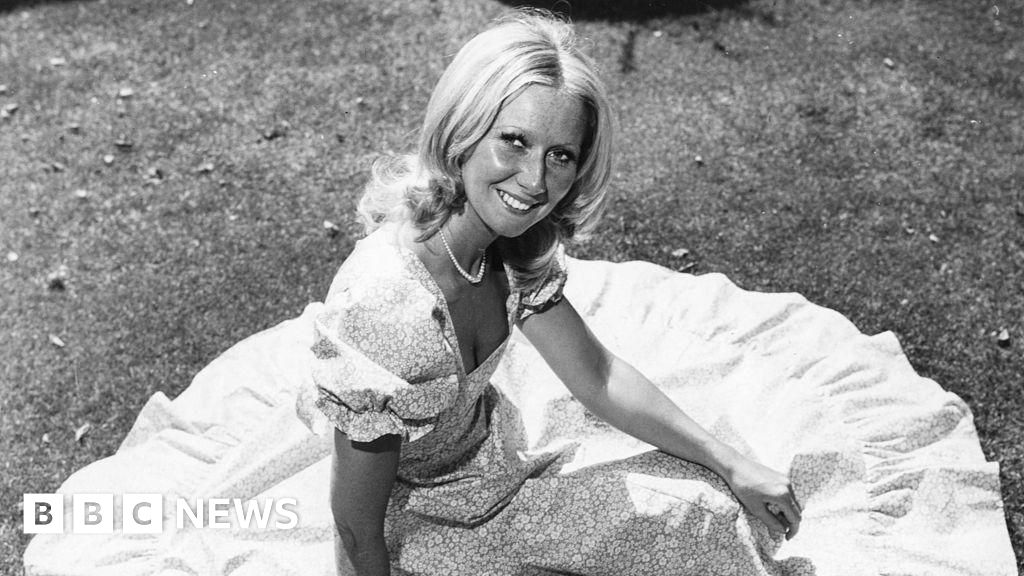






 English (US) ·
English (US) ·